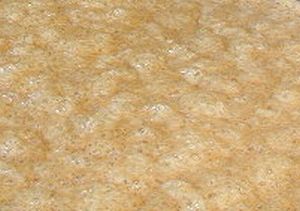New Study Reveals Fermented Stevia Extract's Potential Against Pancreatic Cancer

A groundbreaking study conducted by scientists at Hiroshima University suggests that fermented stevia extract may possess significant anti-cancer properties, specifically targeting pancreatic cancer cells while preserving the integrity of healthy cells. The research, led by Masanori Sugiyama, indicates that the fermentation process enhances the bioactivity of stevia, a natural sweetener that is gaining popularity worldwide.
Historically, stevia, derived from the leaves of the Stevia rebaudiana plant native to Paraguay and Brazil, has been utilized as a sugar alternative due to its natural, low-calorie profile. According to a report by Future Market Insights published in July 2025, the global market for stevia is projected to grow from $1.47 billion to $2.5 billion by 2035, driven by increasing consumer demand for healthier sweetening options amid rising rates of obesity and diabetes.
The study, published on July 29, 2025, involved fermenting stevia leaf extract with Lactobacillus plantarum SN13T, a plant-derived bacteria. Researchers compared the effects of both fermented and non-fermented stevia extracts on pancreatic cancer cells (PANC-1) and non-cancerous human embryonic kidney cells (HEK-293). The results demonstrated that the fermented extract exhibited significantly greater cytotoxicity against pancreatic cancer cells while showing minimal toxicity towards healthy kidney cells, thereby indicating a potential therapeutic benefit.
In a statement, Sugiyama noted, "Our findings indicate that fermented stevia leaf extract demonstrates significantly greater cytotoxicity than the non-fermented extract at equivalent concentrations, suggesting that the fermentation process enhances the bioactivity of the extract."
The most notable active compound identified in the fermented extract was chlorogenic acid methyl ester (CAME), which, when compared to chlorogenic acid, displayed stronger toxicity towards pancreatic cancer cells and pro-apoptotic effects, promoting cell death in the cancerous cells. Narandalai Danshiitsoodol, a co-author of the study, explained that the reduction in chlorogenic acid concentration upon fermentation is likely due to the enzymatic activity of the bacteria used during the fermentation process.
This discovery adds a new dimension to the understanding of stevia and its implications for health, particularly in the context of cancer prevention and therapy. The researchers plan to conduct further studies involving animal models to assess the effectiveness of various dosages.
The implications of this research could extend beyond the laboratory. As stevia continues to be embraced by major food and beverage companies—including PepsiCo, Nestlé, and Unilever—this new evidence may encourage manufacturers to reformulate more products using stevia, potentially transforming public perception of natural sweeteners.
While the study presents promising findings, experts urge caution. Dr. Sarah Johnson, Professor of Nutritional Science at Stanford University, commented on the need for rigorous clinical trials to validate these findings in humans. "While the laboratory results are encouraging, we must ensure that these effects translate into real-world applications before making any health claims regarding stevia as a cancer treatment."
In conclusion, the research underscores the importance of continued exploration into the health benefits of natural substances like stevia. As consumer preferences shift towards healthier alternatives, the potential of fermented stevia extract as a dual-purpose sweetener and therapeutic agent could herald a new era in both the food industry and cancer research. The ongoing studies will aim to clarify its efficacy and pave the way for future applications in dietary practices and cancer therapies.
Advertisement
Tags
Advertisement





